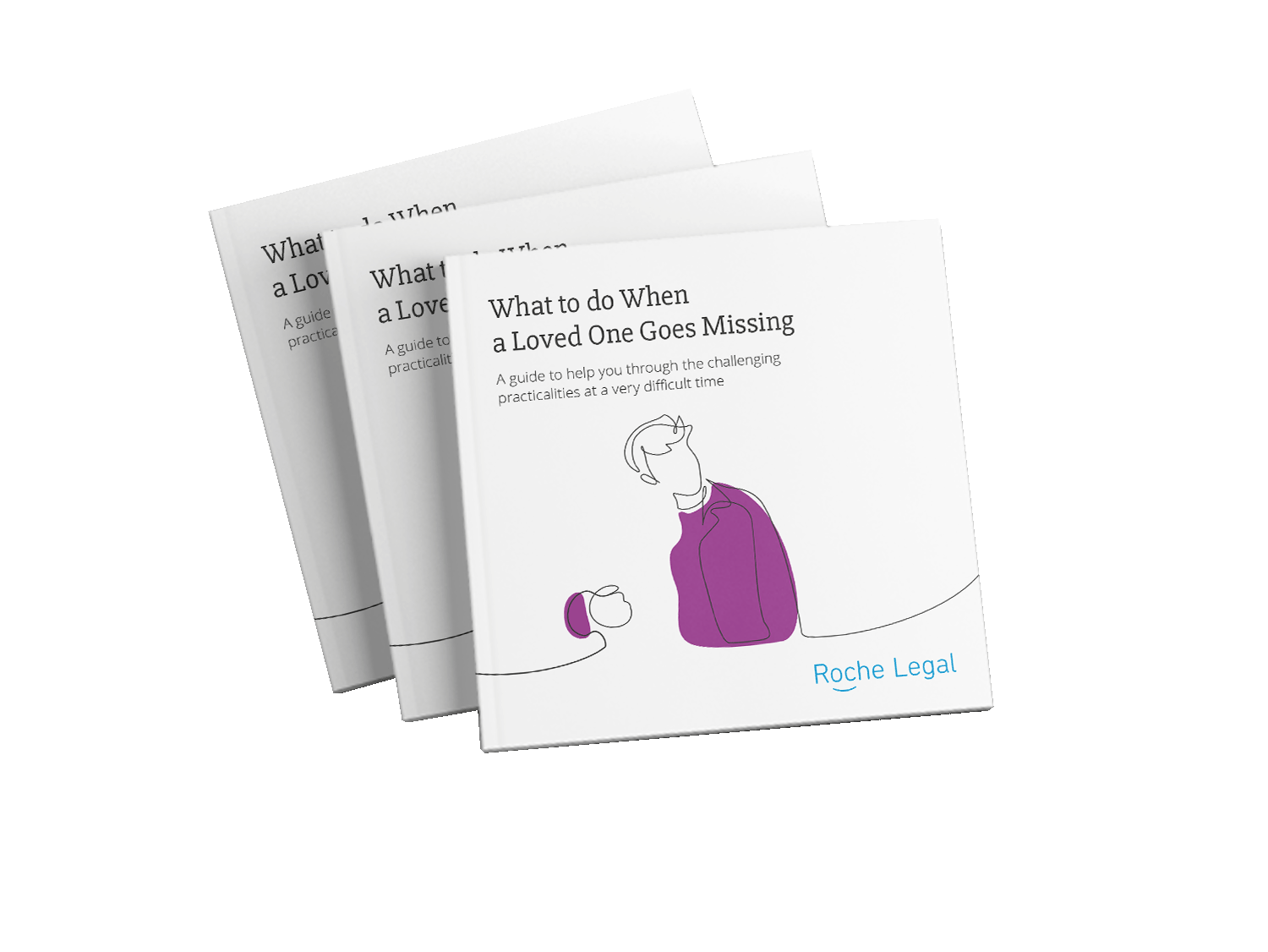When someone one goes missing, it’s undoubtedly very difficult for the loved ones they leave behind. In the majority of cases, missing people are found in a matter of days or weeks. However, sometimes families can be waiting much longer for news.
If your loved one has been missing for ninety days or more, you may be exploring the possibility of applying to appoint a guardian to manage their affairs on their behalf. This is an important role and it comes with a great deal of obligation and responsibility.
If you’re considering applying to be a guardian yourself, or if you’re currently going through the application process, you may want to think about what your first tasks should be once you’re in the role.
Below, we’ve set out some of the first steps you will need to take.

Download our handy guide
Everything you need to know about the legal steps you can take when a Loved One Goes Missing
Pay any required set-up fees
Once the court have decided to grant a guardianship order in your favour, you will receive a letter from the Office of the Public Guardian. This letter will confirm your appointment and notify you of any set up fees that may be due.
You will usually need to pay these fees to the Office of the Public Guardian before you can begin acting. The amount that’s due can depend on the discretion of the court. In some cases, you may also be required to pay an additional security bond.
Make sure you understand the guardianship order you’ve been granted
Each guardianship order is personalised by the court to fit the circumstances within which it has been granted. Before you begin acting, it’s really important to make sure you have familiarised yourself with your particular guardianship order.
Not only will the order have a commencement date for when you can start acting on behalf of the missing person, it will also set out your rights and responsibilities as a guardian. These will vary, so it’s important to be clear on what powers you have and have not been granted.
Thoroughly assess the situation
Once you’re able to start acting, your first task should be to familiarise yourself with the missing person’s affairs. This will include finding out which companies, organisations and financial institutions the missing person held accounts with. You will also need to determine whether the missing person owes any debts and whether any debts are owed to them.
At this stage you should also consider whether there are likely to be any specific responsibilities falling to you relating to the missing person’s dependents, property or investments.
Notify companies and organisations about your appointment
Before you can start accessing any of the missing person’s accounts, you will need to contact the companies, organisations and institutions that hold them. You will be able to notify them about your appointment as guardian by sending them a copy of the guardianship order. Some organisations will accept a copy, while others may require original certificates. You will be able to request additional certificates from the court.
Start keeping thorough records
Guardians are required to keep detailed records of all the actions they take on behalf of the missing person they are acting for. The Office of the Public Guardian are likely to ask to see these records at regular intervals, so it’s important to get into the habit of keeping them as soon as you’re appointed. You will also need to keep receipts for any related expenses, especially if you want to be able to claim these back from the estate.
Carefully consider the question of ‘best interests’
When you are appointed to act as a guardian on behalf of a missing person, you will need to make decisions in the missing person’s best interests. This is not always a straightforward matter, as to do this you will need to balance a number of factors, including:
- What you think the missing person would have done themselves.
- The best financial interest of the person’s estate.
- What would be best for any dependents of the missing person.
- Any advice the missing person would likely have taken before making a decision.
It’s also important to keep in mind that guardians may not have the authority to make certain bigger decisions, such as selling property, themselves. In these cases, you may need to apply to the Office of the Public Guardian for guidance.
Know where you can turn for help
Once again, acting as a guardian for a missing person is a difficult role with a lot of responsibility. It may feel overwhelming sometimes, especially if you’re very close to the missing person you’re acting for.
How Roche Legal can help
We are reassuring experts who can help you with a wide range of legal matters. Please get in touch if you need legal support with:
- Trusts and Estate Planning
- Wills
- Probate and Estate Administration
- Contested Probate and Will Disputes
- Powers of Attorney
- Court of Protection matters
- Presumption of Death Applications
- Missing Persons Guardianship Applications
Need further help?
We understand just how important it is to get the help and support you need quickly.


